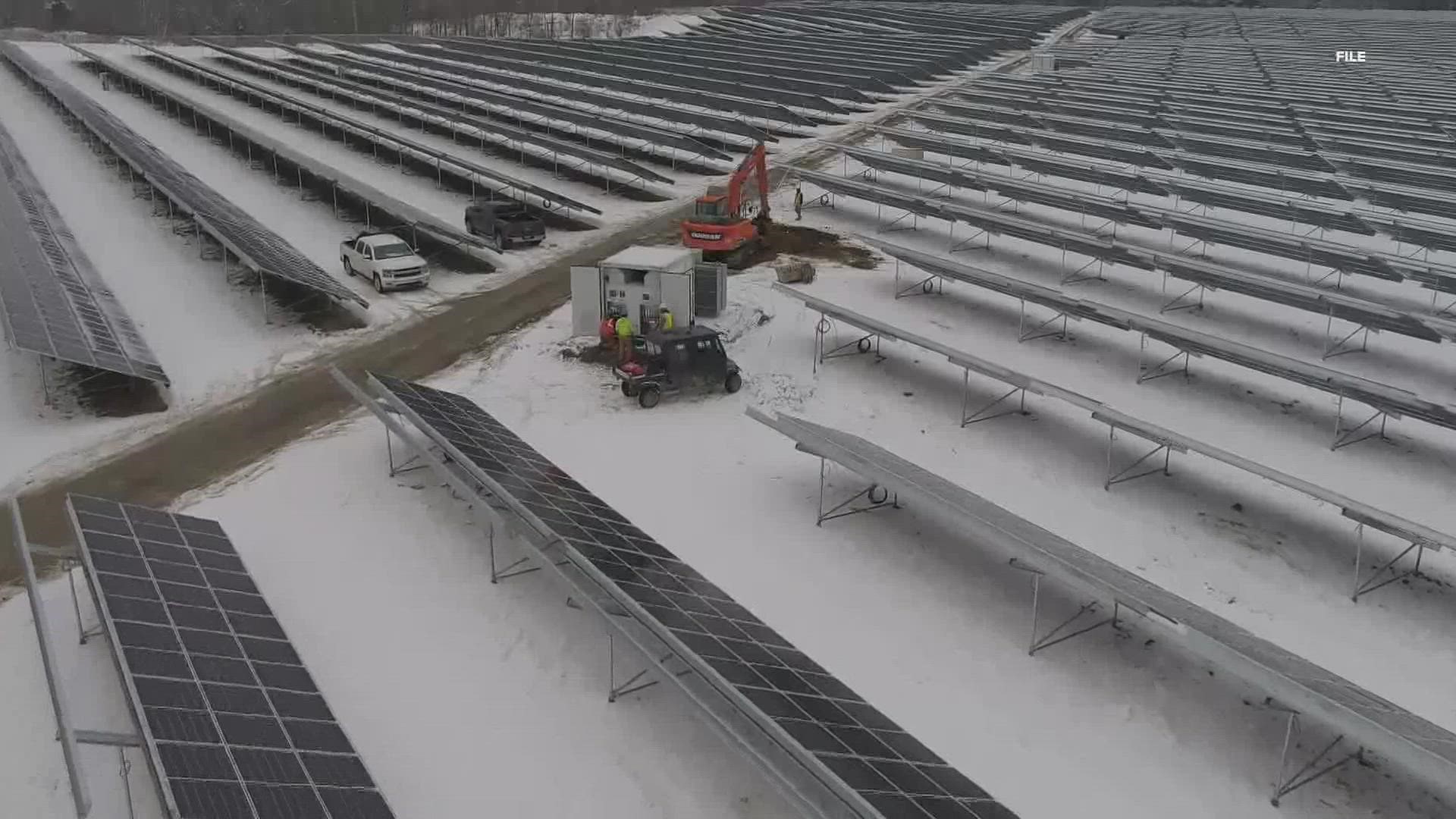HALLOWELL, Maine — Huge, grid-scale solar farms are a vital part of Maine’s strategy for fighting climate change.
But as more solar farms of all sizes are built, the state faces a severe technical and policy problem. According to solar developers and utility regulators, the state’s electric grid can’t handle all the projects currently proposed.
“It’s close to 2,000 megawatts of projects looking to be connected to the grid,” Harry Lamphier, administrative director of the Maine Public Utilities Commission, said.
He said those are proposed projects, and some won’t make it off the drawing boards. But solar developers, like Bob Cleaves of Dirigo Solar, said the grid problem is all too real.
“What Maine has experienced the past 18 months is twice the number of projects have been proposed than the grid can possibly accommodate," Cleaves said.
That surge in solar development proposals results from state policy encouraging solar as a way to reduce emissions that cause climate change.
But the dramatic jump in potential projects raised red flags with the state’s largest utility, Central Maine Power. Earlier this year, the solar developers complained that CMP was causing significant delays and high costs for connecting new projects to the grid.
The company made some changes due to government pressure. However, developers say the process is still too slow, and the grid needs to be updated to handle the new demand for renewable electricity generation.
That’s why the PUC asked the U.S. Department of Energy for help. The DOE has approved Maine as one of 21 states for a new program, providing technical expertise to modernize the electric grid.
Maine will spend the next year working with experts at Lawrence Berkeley Laboratory to identify new technology and methods to bring the state’s grid—privately owned by the utilities—up to the needed level to meet 21st-century demand.
“Understanding emergent technologies and how that can be leveraged for Maine’s grid—we don’t have a lot of expertise in that area, to be frank,” Lamphier said. “Obviously, the Berkeley National Lab does.”
Cleaves said a lot has to be done as Maine “decarbonizes “to battle climate change.
“It’s really all about how does the grid accommodate all these ambitious endeavors— who pays for them, how do they get paid for, and those are really important issues we have to figure out,” he said.
He added Maine has more solar development than the rest of New England combined and that solar investment shows no sign of slowing down—meaning there’s more need than ever to upgrade the grid in ways that work for everyone.
More NEWS CENTER Maine stories

